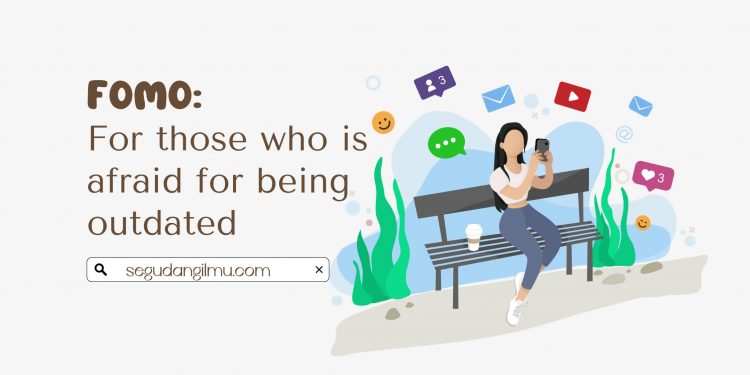Three days ago, Korean girl band Blackpink successfully held a two-day concert in Jakarta, specifically at the Bung Karno Sports Centre Stadium. Jakarta is one of the countries included in their world tour entitled “Blackpink: Born Pink World Tour”. It will be a hit among Indonesian citizens especially for K-pop fans. Interestingly, on Monday, the day after the concert, the terms FOMO became a trending topic on Twitter. It became trending because everyone seems to be so into it, even for people who do not really know about K-pop.
So what does FOMO mean?
FOMO is short for fear of missing out. According to Merriam-Webster, fear of missing out is the fear of not being included in something (an exciting or enjoyable moment) that others are experiencing. It was first used in 2004. The author Patrick J. McGinnis was the first to coin FOMO and popularise it in the Harvard Business School magazine “The Harbus”.
In his article, he discussed the routine among students at Harvard Business School. He described that this phenomenon is usually found in first year students. Patrick explained that FOMO is actually a social flow that weighs heavily on the psyche. Bianca Bosker, a senior technology editor at The Huffington Post, described how FOMO in its extreme has left her not only with a terrifying fear of missing out, but also sweating, itching, pacing and obsessing just to refresh her Twitter feeds.
Christina, Yuniardi & Prabowo (2019) found in their research that there was a positive correlation between FOMO and neuroticism. The findings stated that when a teenager experiences and acts with a negative emotion, the higher the anxiety they have towards other people who might have a pleasure or experience that is more joyful in which you are not included. A teenager with a high level of neuroticism will find it difficult to satisfy their need for relatedness. This is because they feel inferior and are easily underestimated (Watson, 2001).
The cognitive aspect of FOMO is manifested by negative reflections such as checking and updating social media for alerts and notifications. The effect of FOMO can lead to interpersonal stress, which is associated with insomnia and poor mental health outcomes. FOMO also has a negative impact on academic performance. In terms of physical well-being, FOMO can lead to poor lifestyle choices such as poor eating habits. FOMO is also associated with lower productivity and poorer mental health outcomes (Gupta and Sharma, 2021).
Social psychologist Erin Vogel explains some of the symptoms of FOMO, including
- Overscheduling (trying to be everywhere at all times)
- Withdrawing from others
- Feeling physically tired
- Feeling sad, anxious or depressed
- Difficulty concentrating
- Having trouble sleeping
The above symptoms cannot be used as an indicator to diagnose ourselves. However, if you find that you always feel bad after checking your social media, you may be aware of this sign. Erin Vogel and Dattilo have some advice on how to deal with FOMO, as described below:
- Remember that everything on social media doesn’t represent your whole life.
You have to remember that people do not upload all of their normal lives. The moment you see on social media may only be 1% of their life. The happiness they share does not mean they are happy all day.
- Be mindful of your time.
You just need to focus on how you spend your time. If you feel satisfied with your life, you will be less likely to compare it to others.
- Identify your triggers
Your phone could be a trigger for FOMO. If so, spend less time with it. It might help to uninstall the social media that causes FOMO.
- Seek professional help
See a therapist if you can no longer cope with the feeling. Dr Dattilo said that CBT (cognitive behavioral therapy) can help break habits that lead to FOMO, such as overusing social media.
It is important to remember that we do not need to compare our lives with others. Focusing on what we have and maximizing it is the key to living happily to the full. PRS.



